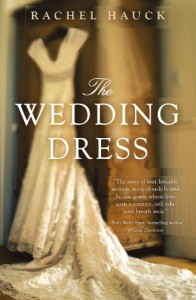
I don't understand all of the positive reviews on this book. The writing style killed me. There were not a lot of stopping points or page breaks so the story seemed to be one long stream of consciousness that went on forever. The sentence structure was not complex, and the sentences very short and more than a little repetitive. Lot of "us kids" or "we kids".
As far as the story goes, I understand it is a memoir, but it seems unrealistic to think that she would remember the detail she did, as far as full conversations that happened when she was 3 years old. And there is only so many times as a reader I want to read about a potential, attempted, or actual molestation of one of the four children. These kids had terrible parents and were let down by every adult in their lives, I get it, but the story became boring in its continual dire doomsday story telling. I should have felt sympathy for the author having to eat out of garbage cans or coming home to find her money stolen by her drunken father, but I had become immune to the story by that point.
I feel like this would be one of those rare cases that make a better movie than a book, but I just didn't care about the author at the end of the story. And when I say "end" I say that loosely, because that is what happens, it just suddenly ends. I feel like there should have been more of a "where are they now" ending with regards to the author and her siblings.
Sonia, a goodreads reviewer, put it in much better words than I did, so I am going to share her review:
Normally, addicting books have amazing characters. That is why they are addicting. How could you stop reading when their destiny is written on the next page? It's the secret to Harry Potter, Sherlock Holmes, Gone with the Wind -- any book containing characters that resonate throughout literary history.
However, I cannot say the same for The Glass Castle. How could a book be so addicting yet have such a bland and romanticized heroine? While I read this book in one sitting, I became more and more detached to the narrator Jeannette as the book went on.
Jeannette's childhood is horrific, with neglectful parents, molestation, and starvation as just a few of the atrocities. However, when Jeannette retells these events, she is emotionally flat. She lacks insight into both her youth and herself, leaving the readers with a boring character who seems to have no flaws. If you asked me to describe Jeannette's personality, all I could come up with is "terrible childhood" and nothing about the woman herself.
I understand that since this is a memoir, it can be hard to write accurately about yourself and portray your own character in a negative light. However, memoirs are the perfect place to analyze your own flaws and weaknesses. Since Jeannette does not seize this opportunity to shed light on herself, she comes off as a flat Mary-Sue, defined by her terrible surroundings. She never portrays herself in a negative light, not once, making me lose respect for her.
Besides the shallow lead, this book has a steady and stagnant tone, never varying from uninteresting detachedness. Jeannette tells everything in the same tone, from being literally burned alive to marrying her husband. The addictiveness of this book stems not from any dynamic characters or varying tones, but from the horror of what's happening to her.
While Jeannette's story is fascinating, she herself is not. In fact, this book makes me feel manipulated: She relies on horror or her surroundings and edits out her flaws to make readers like her.
I give this book three stars for sheer readability and addictiveness, nothing else.
 Atheists Who Kneel And Pray
Atheists Who Kneel And Pray 














